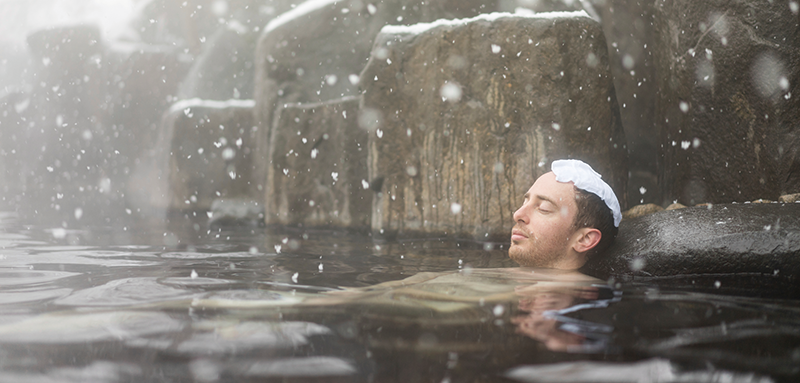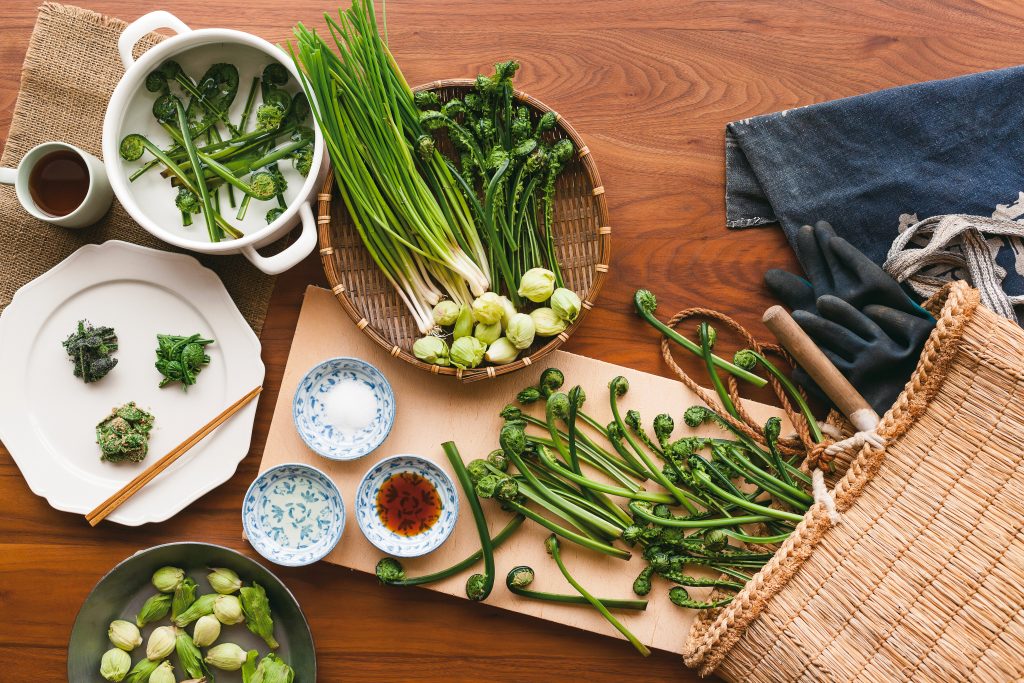
We will take you on a journey of the senses to experience the wisdom of YUKIGUNI.
A gastronomy tour is a way of discovering the culture through food. You will be able to experience the culture of YUKIGUNI with delicious seasonal meals. Interacting with the locals and meeting the unique culture will be an experience full of valuable learning opportunities.
YUKIGUNI’s culture is based on wisdom: In a country where it snows for almost half the year, the wisdom of how to live in the snow is alive and is expressed in the food we eat. Interacting with the locals is a great way to learn about this wisdom.
YUKIGUNI Gastronomy is also featured in articles by JNTO.
Tour Highlight
- In YUKIGUNI, where the four seasons are clearly defined, each season offers a different way of enjoying gastronomy tours.
- These four tours offer unique opportunities to experience YUKIGUNI’s rich culture through its seasonal and local cuisine.
- All tour guides are experts with deep knowledge of YUKIGUNI’s unique culture and traditional wisdom.
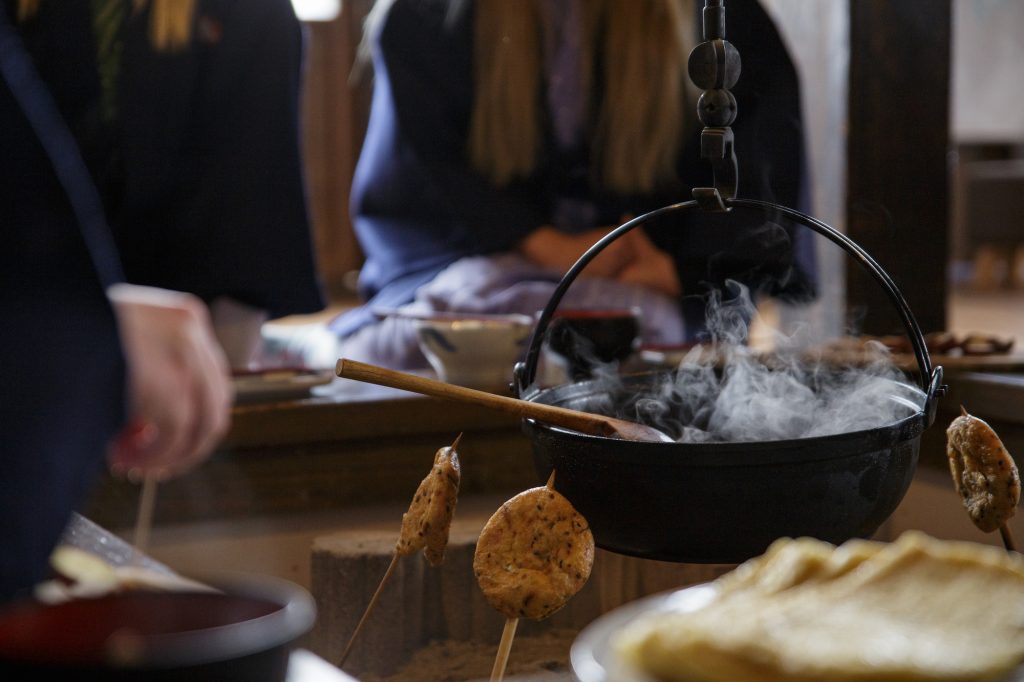
TOUR INFORMATION
Experience the rich culinary traditions of YUKIGUNI, where each season unveils a unique gastronomic adventure. From foraging wild mushrooms in satoyama forests to mastering doma cooking with locals, every moment is steeped in the region’s culture and flavors.
Begin your journey in Matsunoyama Onsen, renowned for its medicinal hot springs and breathtaking mountain scenery. Guided by experts, forage for wild vegetables and mushrooms, then prepare your harvest in a traditional irori (hearth) setting. The fresh, earthy flavors are a taste of the forest itself.
For a cultural twist, head to ryugon in Muikamachi for a doma cooking class. Learn local recipes from seasoned home cooks, gaining insights into YUKIGUNI’s lifestyle.
Prefer a deep dive into tradition? Visit Akiyamago for a two-day adventure with Matagi hunters or enjoy sake pairing tours in Uonuma.
Join us for an unforgettable exploration of YUKIGUNI’s seasonal flavors!
Itinerary


1. Mountain Scenery and Onsen Cooking (About 5 hours)
Discover the charm of Matsunoyama Onsen, nestled in the mountains and famous as one of Japan’s top three medicinal hot springs. Join a friendly guide to forage for seasonal wild vegetables and mushrooms in the satoyama. Experience the thrill of finding natural treasures like nameko mushrooms growing on trees. Afterward, cook your harvest in a traditional home called “Jiro” and enjoy a delicious meal around the cozy hearth. Guests often say the fresh flavors and warm atmosphere leave them feeling recharged and energized. It’s a perfect way to connect with nature and savor the true taste of the forest!
Please note: we ask that you bring your own warm clothing and gloves according to the season. Trekking shoes or rain boots are essential (boots can be hired). Please be aware that we will be collecting natural resources and that we may not be able to collect them depending on the conditions at the time.
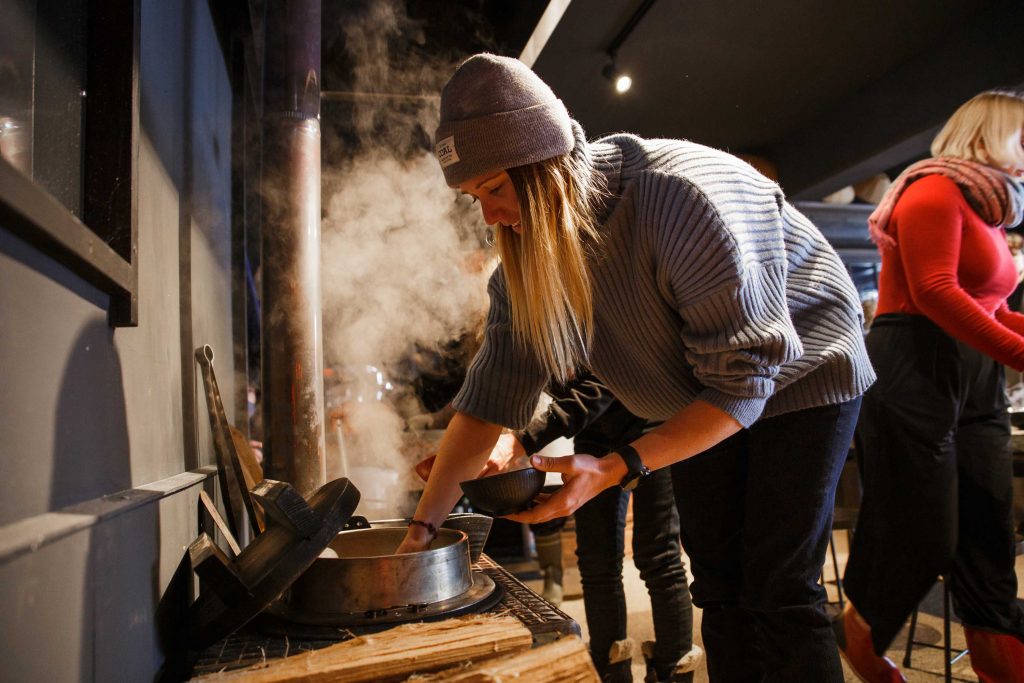

2.Doma Cooking
Just a 30-minute ride from Echigo Yuzawa Station, ryugon in Muikamachi is a beautifully designed inn blending traditional architecture with modern style. One of the highlights here is the Doma Cooking course, where a local mother warmly teaches you how to prepare delicious regional dishes. Along the way, you’ll enjoy heartfelt conversations that offer a glimpse into the rich lifestyle and wisdom of YUKIGUNI. It’s a hands-on, memorable experience that lets you connect with the local culture while savoring the unique flavors of the area. Perfect for those looking to learn and relax in an inspiring setting!


3. Cultural experience in Akiyamago (2 days)
Take a journey to Akiyamago, one of YUKIGUNI’s most secluded and enchanting areas, just 1.5 hours from Echigo Yuzawa Station. This two-day tour, offered from late March to early April, lets you experience the beauty of snow-covered landscapes. On the first day, savor a hearty gibier dinner at a guesthouse owned by a traditional Matagi hunter. Hear fascinating stories about their unique culture and explore authentic hunting tools. Day two brings an exciting snowshoeing adventure in the serene mountains, guided by an experienced Matagi who shares insights into nature and hunting traditions. A perfect blend of culture, nature, and adventure!

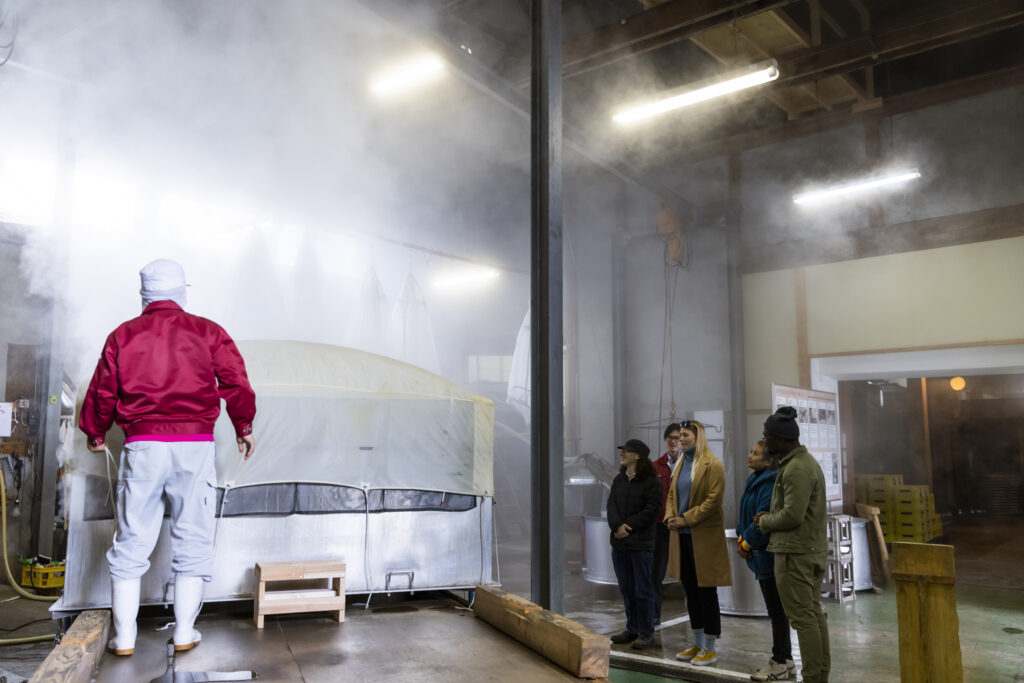
4. Savoring local cuisine and Japanese sake in YUKIGUNI (About 5 hours 30 minutes)
Embark on a delightful journey to Uonuma, just 1 hour and 20 minutes from Echigo Yuzawa Station. Hop on the charming Tadami Line train and explore the historic “Meguro Residence,” a glimpse into traditional Japanese life. Enjoy a delicious lunch featuring local cuisine at a cozy guesthouse, followed by a visit to a nearby sake brewery. Here, you’ll learn about the brewing process and savor a tasting of premium local sake. This tour is a perfect mix of history, culture, and culinary delights, offering a warm and friendly experience in the heart of YUKIGUNI.
Price
11,000 YEN〜 per person per experience
Prices vary depending on the tour details, transportation options, and the number of participants.
Contact Us
Feel free to reach out and let’s start planning your perfect escape!
Step 1: Get in Touch
Wondering where to stay or what unique tours to try? Just drop us a message! We’re here to answer any questions and help you feel at ease.
Step 2: Let’s Plan Together
We’ll chat about your style, budget, and travel dates to create a personalized itinerary that’s perfect for you.
Step 3: Confirm & Explore
Once you love the plan, we’ll finalize the details. Then, all that’s left is to set off on an unforgettable Snow Country adventure customized just for you!

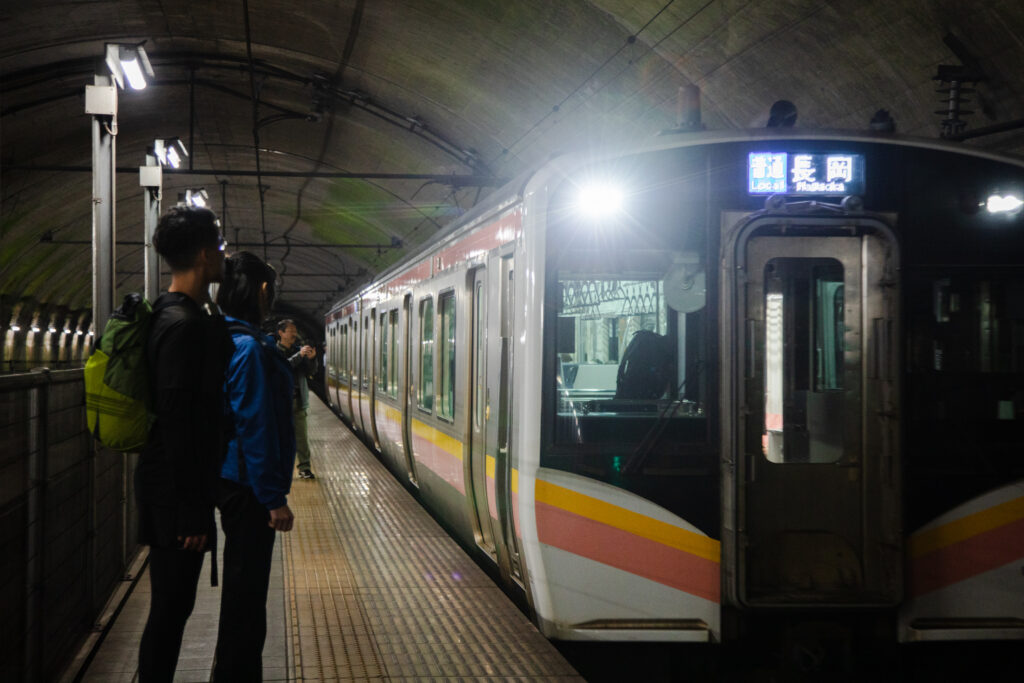
-1024x626-2.jpg)
